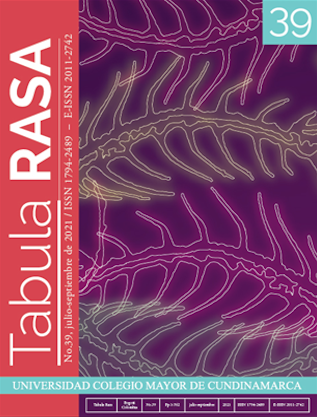Debates over geographical scale in the anglophonic world.
Debates sobre la escala geográfica en el mundo anglófono.
Show authors biography
Debates about geographical scale have dramatically shaped anglophonic human geography in the past three decades. Two principal sets of questions have been at the forefront of discussion: what is the ontological status of scale?; and how do the ways in which we imagine that the world is scaled geographically affect how we behave in it? These questions have been especially significant in the context of arguments over the nature of globalization, where the changing relationship between different scales is a central consideration – for instance, globalization has variously been viewed as representing an undermining of national sovereignty, the delocalization of social life, and so forth. In this paper, then, I outline some of the main elements of these debates.
Article visits 135 | PDF visits 102
Downloads
- Benedict, B. (1983). Imagined communities: Reflections on the origin and spread of nationalism. London: Verso.
- Castree, N. (2010). Workers, economies, geographies. En S. McGrath-Champ, A. Herod, & A. Rainnie (Eds.), Handbook of employment and society: Working space (pp.457-476). Cheltenham, UK: Edward Elgar.
- Deleuze, G. (1990). The logic of sense. New York: Columbia University (traducción en inglés, 1990; publicado por primera vez en francés en 1969).
- Gibson-Graham, J. K. (2002). Beyond global vs. local: Economic politics outside the binary frame. En A. Herod & M.W. Wright (Eds.), Geographies of power: Placing scale (pp.25-60). Oxford: Blackwell.
- Hart, J. F. (1982). The highest form of the geographer’s art. Annals of the Association of American Geographers, 72(1), 1-29.
- Hartshorne, R. (1939). The nature of geography: A critical survey of current thought in the light of the past. Lancaster, PA: Association of American Geographers (cuarta reimpresión, 1951).
- Harvey, D. (1982). The limits to capital. Oxford: Basil Blackwell.
- Herod, A. (2010). Scale. London: Routledge.
- Herod, A. (2001). Labor geographies: Workers and the landscapes of capitalism. New York: Guilford Press.
- Hoefle, S. W. (2006). Eliminating scale and killing the goose that laid the golden egg? Transactions of the Institute of British Geographers New Series, 31(2), 238-243.
- Johnston, R., & Sidaway, J. D. (2016). Geography and geographers: Anglo-American human geography since 1945, 7th Ed. London: Routledge.
- Kant, I. (1894). Kant’s inaugural dissertation of 1770. New York: Columbia College.
- Latour, B. (1996). On actor-network theory: A few clarifications. Soziale Welt, 47, 369-381.
- Latour, B. (1993). We have never been modern. Cambridge, MA: Harvard University Press.
- Lefebvre, H. (1974/1991). The production of space. Oxford: Basil Blackwell (traducción al inglés, 1991; publicado por primera vez en francés en 1974).
- Marston, S.A., Jones III, J.P., & Woodward, K. (2005). Human geography without scale. Transactions of the Institute of British Geographers New Series, 30(4), 416-432.
- Moore, A. (2008). Rethinking scale as a geographical category: From analysis to practice. Progress in Human Geography, 32(2), 203-225.
- Sauer, C.O. (1924). The survey method in geography and its objectives. Annals of the Association of American Geographers, 14(1), 17-33.
- Sauer, C.O. (1925). The morphology of landscape. University of California Publications in Geography, 2(2), 19-53.
- Smith, N. (1984/1990). Uneven Development: Nature, Capital and the Production of Space. Oxford: Blackwell.




